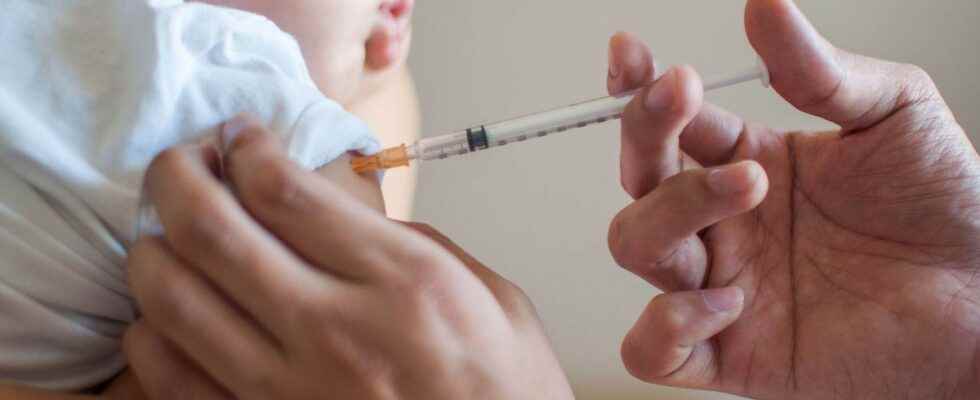Published on
Updated
Reading 2 mins.
The High Authority for Health authorizes the vaccine against Covid-19 for children aged “six months to four years”, at risk of serious forms of the disease. The opinion of Dr Gérald Kierzek, emergency doctor and medical director of Doctissimo.
Targeted vaccination for the most vulnerable
“In a context of active circulation of the SARS-CoV-2 epidemic, the Haute Autorité de santé recommends extending vaccination against Covid-19 as of today to children aged 6 months to 4 years old at risk of serious form of illness and death”. It is with these words that the High Authority of Health (HAS) begins its press release, thus justifying this authorization of vaccination by viral circulation.
According to Dr Gérald Kierzek, emergency doctor and medical director of Doctissimo: “HAS is continuing its targeted vaccination strategy for the most vulnerable and those particularly vulnerable to the disease. Remember that this remains a decision to be made in discussion with your doctor.“.
Strategy of “cocooning”
In addition to authorizing the vaccine for children in this age group at risk of serious forms, the HAS “also recommends vaccinating children in this age category living in the environment of immunocompromised people or who do not respond to vaccination“.
A strategy called “cocooning“, aiming to protect the most vulnerable by vaccinating those around them. The HAS continues by specifying that this “Primary vaccination is now possible with the Comirnaty vaccine from Pfizer, which obtained an extension of indication for this age group on November 25th”.
A three-dose vaccination schedule
According to the HAS, the dosage of the Comirnaty vaccine has been adapted to children under 5 years old at “3 micrograms/dose”. The recommended vaccination schedule is a three-dose administration, with “a first interval of 3 weeks, then a second interval of at least 8 weeks”. The HAS bases its decision on data from Public Health France, which estimates that “children under 1 year old accounted for 70% of hospitalizations for 0-17 year olds and 84% of critical care admissions”.
In addition, it also reports the available data on the Pfizer vaccine, with “an efficacy of 80.3% against symptomatic infections for all age groups between 6 months and 4 years who have no history of infection” and immunogenicity and safety data qualified as “satisfactory“. Thus, specifies the HAS, “no death, no case of myocarditis or pericarditis was reported in the various studies carried out“.
Who are the children at risk of serious forms?
For HAS, children affected by the following pathologies can be vaccinated now:
- congenital heart disease;
- Chronic liver diseases;
- Chronic heart and respiratory diseases (including severe asthma requiring ongoing treatment);
- Neurological diseases;
- Primary or drug-induced immunodeficiency;
- Obesity;
- Diabetes ;
- Hematological malignancies;
- sickle cell disease;
- Trisomy 21.
It also recommends this primary vaccination for children with one of the comorbidities previously identified in adults as risk factors for developing a severe form of the disease, including:
- a recent cancer;
- chronic kidney disease;
- a neurological disability.
